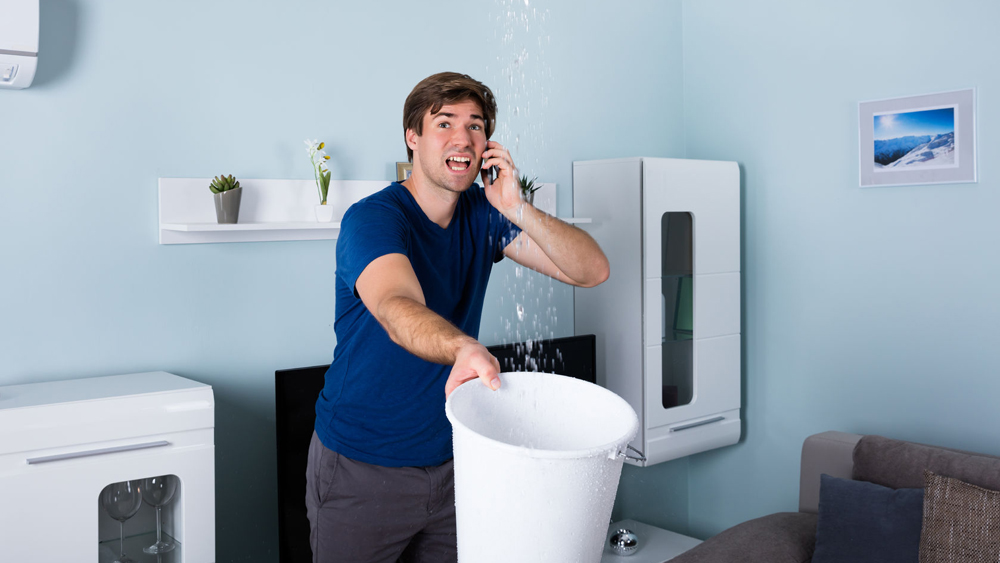Preventative Measures for the Six Most Common Causes of Water Leaks in Residential Spaces
Preventative Measures for the Six Most Common Causes of Water Leaks in Residential Spaces
Blog Article
What're your thoughts on Most Common Causes of Leaky Pipes?

Leakages not only create waste of water however can also create unneeded damage to your residence and also promote undesirable natural growth. By looking and understanding for day-to-day circumstances that create leakages, you can protect your residence from future leaks and also unnecessary damages.
Immediate temperature level modifications.
Extreme temperature level changes in our pipes can trigger them to expand as well as contract suddenly. This development and tightening might cause fractures in the pipelines, particularly if the temperature level are below freezing.
Rusty water systems
This might be the cause of discoloration or warping on your water pipes. If our plumbing system is old, think about changing the pipelines since they are at a greater danger of rust than the more recent versions.
Malfunctioning Pipeline Joints
The point at which your pipes connect is frequently the weakest link in the waterline. Pipe joints can weaken in time, leading to water leakages. Regrettably, most of pipeline joints are not quickly visible. If you have noisy pipes that make ticking or banging noises, specifically when the warm water is activated, your pipeline joints are possibly under a great deal of stress. It is a good idea to have your plumber check your system yearly.
Intruding roots
Many water leaks begin outside your house instead of inside it. If you discover a sudden decrease in water stress, state in your tap, take time to head out as well as examine your backyard. You could see damp patches or sinkholes in your backyard, and that might imply that tree roots are invading water lines causing water to permeate out. You can have your plumber check for intrusion, especially if you have trees or hedges near your property.
Poor Water Connectors
At times, a leakage can be triggered by loose pipes as well as pipelines that provide your appliances. More often than not, moving is what causes the loosened water Connections. You could discover when it comes to a cleaning machine, a pipe may spring a leakage due to drinking during the spin cycle. In case of a water links leak, you might see water running straight from the supply line or pools around your home appliances.
Blocked Drains
Blocked drains might be irritating as well as inconveniencing, but they can often wind up causing an overflow bring about burst pipes. Maintain removing any products that might go down your drains pipes that can clog them to prevent such aggravations.
All the above are root causes of leakages however not all water leaks arise from plumbing leakages; some leaks may originate from roof covering leaks. All leakages need to be repaired right away to stay clear of water damage.
Leaks not only trigger waste of water yet can also trigger unneeded damages to your house and also advertise undesirable organic development. By looking and recognizing for day-to-day scenarios that trigger leaks, you can safeguard your home from future leaks and also unnecessary damage. Today, we will look at six leak triggers that might be triggering your pipelines to trickle.
At times, a leakage can be created by loosened hoses and pipes that supply your appliances. In case of a water connections leak, you may notice water running directly from the supply line or puddles around your appliances.
How To Check For Water Leak In Your Home
How To Check for Leaks
The average household's leaks can account for nearly 10,000 gallons of water wasted every year and ten percent of homes have leaks that waste 90 gallons or more per day. Common types of leaks found in the home are worn toilet flappers, dripping faucets, and other leaking valves. These types of leaks are often easy to fix, requiring only a few tools and hardware that can pay for themselves in water savings. Fixing easily corrected household water leaks can save homeowners about 10 percent on their water bills.
To check for leaks in your home, you first need to determine whether you're wasting water and then identify the source of the leak. Here are some tips for finding leaks:
Take a look at your water usage during a colder month, such as January or February. If a family of four exceeds 12,000 gallons per month, there are serious leaks.
Check your water meter before and after a two-hour period when no water is being used. If the meter changes at all, you probably have a leak.
Identify toilet leaks by placing a drop of food coloring in the toilet tank. If any color shows up in the bowl after 10 minutes, you have a leak. (Be sure to flush immediately after the experiment to avoid staining the tank.)
Examine faucet gaskets and pipe fittings for any water on the outside of the pipe to check for surface leaks.
Undetected water leaks can happen without the home or business owner even realizing. If you suspect a water leak, but not able to find the source. It is time to contact a professional water leak detection service, The Leak Doctor.
How To Find a Water Leak In Your Home
https://www.leakdoctor.com/blog/How-To-Check-For-Water-Leak-In-Your-Home_AE197.html

I stumbled upon that piece about Most Common Causes of Leaky Pipes while surfing the web. If you please take a moment to promote this content if you enjoyed reading it. I praise you for your time. Visit us again soon.
Get Quote Report this page